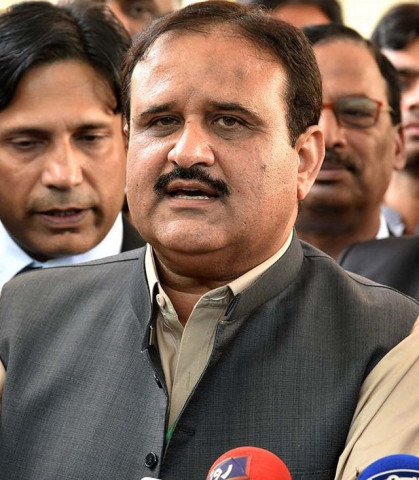CM orders start of work on Thal Canal
Project will irrigate 290,000 acres of agricultural land

Punjab Chief Minister Sardar Usman Buzdar has ordered start of work on the Greater Thal Canal project to irrigate barren land in the districts of South Punjab as soon as possible.
The decision has led to hopes for the completion of the 160-year-old project for the region. In 1860, the then government announced the launch of the Greater Thal Canal project for which funds were also allocated. However, the plan was put on hold amid changing priorities of the authorities over time.
The Mankirah branch of the Greater Thal Canal was completed in 2008, after which the remaining work on the project was stopped.
The Asian Development Bank (ADB) has announced a $150 million grant to start work on the Chobara branch, after which Chief Minister Buzdar has announced start of work on the project.
The Greater Thal Canal project will irrigate 290,000 acres of agricultural land in backward districts like Bhakkar, Layyah, Khushab and Muzaffargarh. It is expected to increase the production of important crops in South Punjab by about 40%. The main canal will be 35km long. The water capacity of the main canal will be 8,500 cusecs, while the length of branch canals will be 344km.
Usman Buzdar urges legislators to monitor relief measures
Chief Minister Buzdar also laid the foundation stone of the 121-year-old Jalalpur canal system last year.
While ordering start of construction of the Greater Thal Canal System, it was announced that the Punjab government would provide all kinds of resources, manpower and technical expertise for the project. An agrarian revolution can be brought about under the Greater Thal Canal System.
While presiding over a meeting, Buzdar said the legal process for acquisition of land for Greater Thal Canal should be completed on a priority basis. The commissioner should complete the survey immediately and fix the land rates, while the landowners should be paid the price in a transparent manner through a one-window operation, he said.
The chief minister said the food crisis could be averted by cultivating barren land in Layyah, Bhakkar, Muzaffargarh, Khushab and Jhang. The Greater Thal Canal System could serve as a game changer for the purpose.
The irrigation department says the project will also help overcome the water crisis by prevent the rapidly decline of the groundwater level. The chief minister said that along with industrial development, agricultural development is also very important. The recent wheat crisis is also reported to have prompted the chief minister to start work on the canal system.
The chief minister said during the meeting that the canal system's restoration should be expedited to increase agricultural productivity.
He said the forest department should be provided alternative land in lieu of the area acquired from it.
The Punjab cabinet would give final approval of financial matters related to the project, he added.
Meanwhile, Chief Minister Buzdar has also approved the establishment of the River Ravi Front Authority for developing a mini city north of the provincial capital.
CM Buzdar approves Punjab economic revival plan
According to a statement issued by the CM office, Punjab government will promulgate an ordinance for the establishment of the authority with the chief minister as its chairperson.
This authority would work for developing a new city over an area of more than 100,000 acres.
It is expected that about Rs5 trillion investment will be made by the private sector in the scheme near Lahore.
According to official documents, the construction of the new city would help to overcome the problems of traffic congestion, water and environment in Lahore. A large lake and barrages will also be built in the new city.
Published in The Express Tribune, July 11th, 2020.


















COMMENTS
Comments are moderated and generally will be posted if they are on-topic and not abusive.
For more information, please see our Comments FAQ